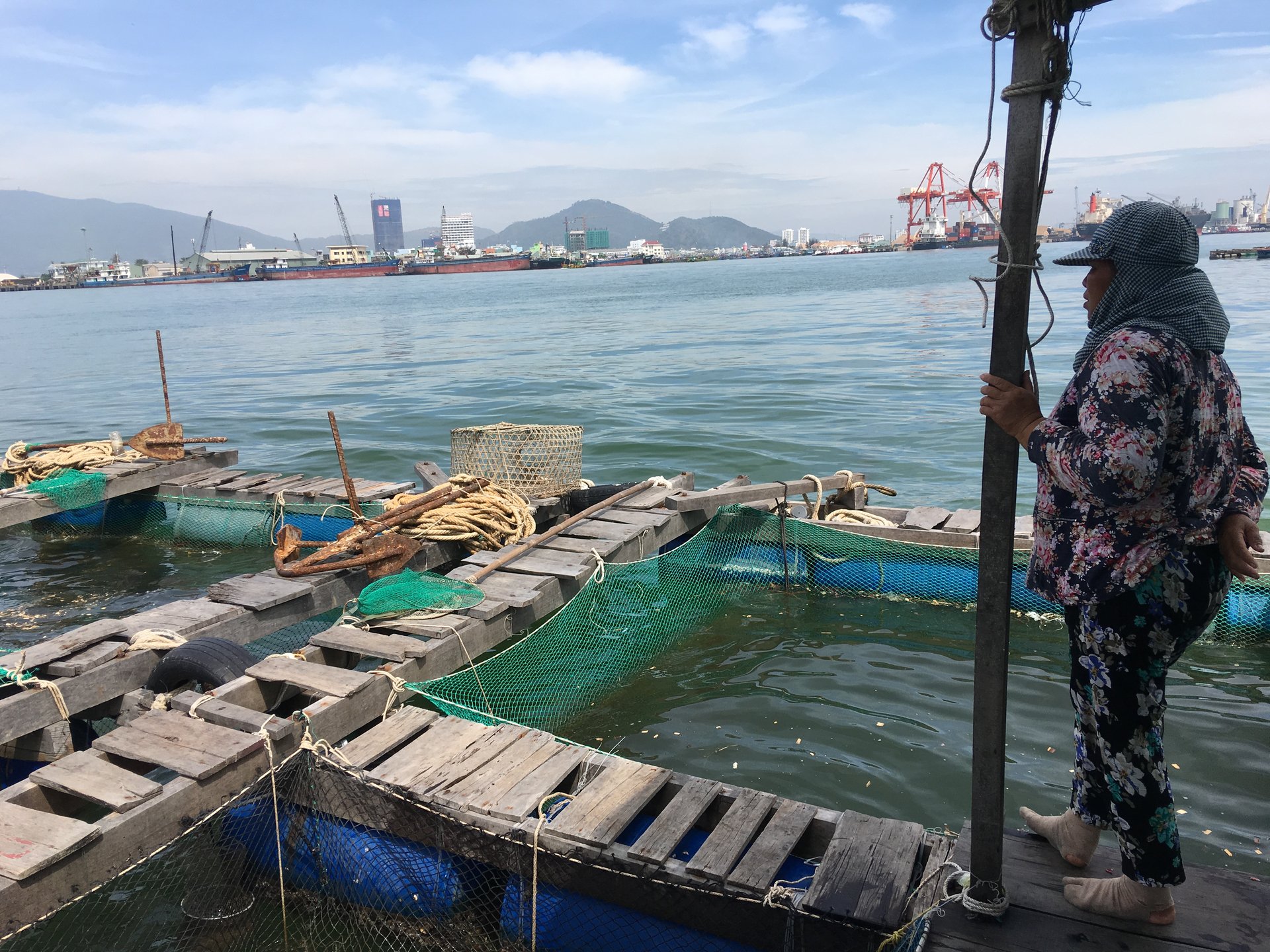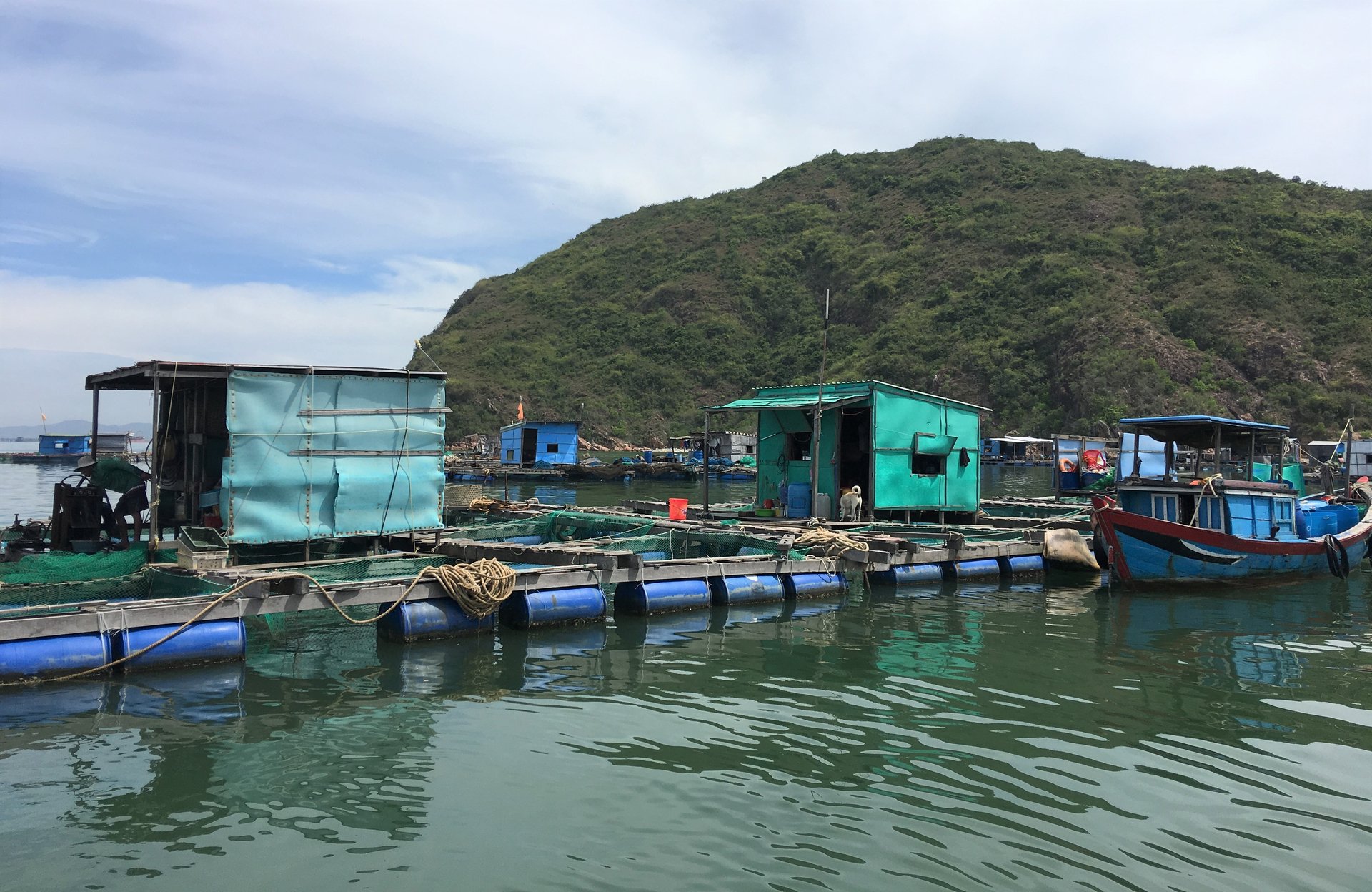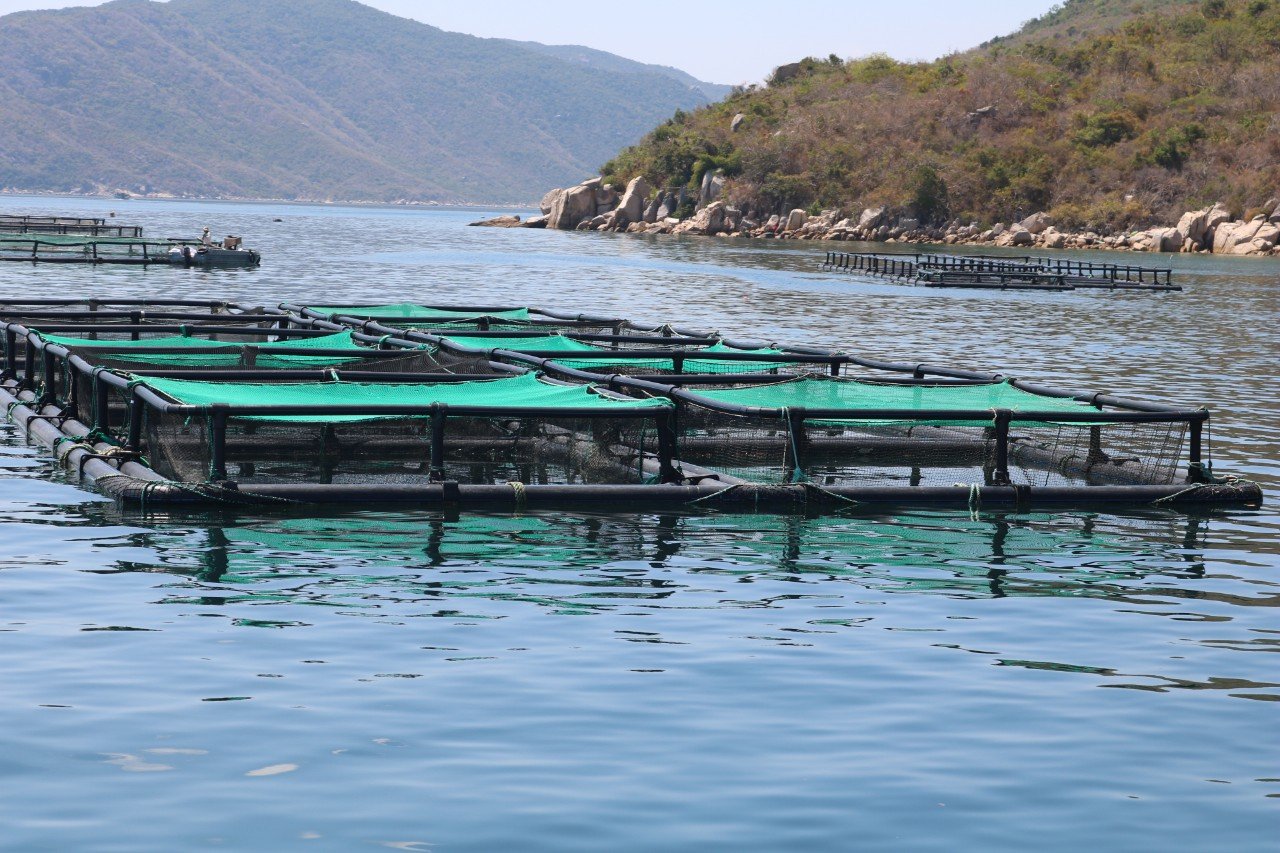November 28, 2025 | 04:52 GMT +7
November 28, 2025 | 04:52 GMT +7
Hotline: 0913.378.918
November 28, 2025 | 04:52 GMT +7
Hotline: 0913.378.918
The Law on Fisheries stipulates that the time limit for sea allocation to organizations and individuals cultivating seafood is 30 years. The allocation time can be extended for an additional 20 years, provided that the assigned sea surface area is within the planning. However, currently there is no sea surface planning, so implementation is impossible.
Mentioning the conversion of marine farming methods from traditional to industrial, Dr. Nguyen Huu Dung, Chairman of Vietnam Seaculture Association (VSA) said, “I believe localities should take the initiative in this movement. Currently, in the whole country, only Quang Ninh province has announced a marine farming plan and was approved by the Prime Minister. Other coastal provinces are waiting for the national master plan."

To develop industrial marine farming, Vietnam needs to urgently plan marine space. Photo: V.D.T.
The issue of handing over sea surface to organizations and individuals for farming purposes has its own problems. First of all, granting licenses for marine farming is the responsibility of the agricultural sector, but when it’s time to assign the right to use the sea surface, it is the responsibility of the natural resources and environment sector, such a cumbersome process.
“Another thing to add is that there is currently no standard for marine farming at the national level. Without standards and regulations, we cannot talk about inspection and evaluation, and there are no procedures for registering facilities and farming equipment,” said Dr. Nguyen Huu Dung.

Currently, transferring the rights of sea surface to organizations and individuals for farming purposes has many problems. Photo: V.D.T.
According to Dr. Vo Si Tuan, Vice President of VSA, the authorities must plan for both traditional farming areas and industrial open sea areas. If only one of the two is planned, it will not meet the needs of small farming households or industrial farming enterprises.
As the transition process may take time, Dr. Vo Si Tuan believes that the marine farming industry needs to implement parallel planning. “It is necessary to encourage natural marine farming to both preserve the ecology of the sea environment and achieve economic efficiency”.
Binh Dinh is a long sea area, near-shore farming is more difficult than in other places due to few algae and no closed bays. Now that there is a trend of shifting sea farming from traditional to industrial methods and open waters are a favorable environment for investment, Binh Dinh has an advantage in developing marine farming.

The sea area from Binh Dinh to Ninh Thuan a few dozen meters offshore is deep and has strong currents, making it possible to implement industrial marine farming models. Photo: V.D.T.
“The sea area from Binh Dinh to Ninh Thuan has similar conditions, suitable for developing marine farming. A few dozen meters away from shore, the sea is deep and the current is strong. These are the prerequisites for successful sea farming. If sea surfaces are open for business, companies will certainly jump in.
“The national marine space planning should have been completed by 2020, but it is still not at present and may not be completed by 2025. Planning for marine farming in localities within 6 nautical miles has not been paid attention to, so I don’t really understand how it can be implemented," Dr. Nguyen Huu Dung said.
Regarding the concerns about sea surface for offshore farming, Australis Aquaculture Vietnam Ltd. (Australis Vietnam) Is a mentionable example. According to Director of Operations Hoang Ngoc Binh, the company leases the sea surface in Van Phong bay (Khanh Hoa) and has been conducting business for 20 years, and the contract expires in 2023 while the company is operating effectively.
Khanh Hoa People's Committee did not continue to lease the sea surface and instead told the company to relocate to the open sea for operations. Relocating to a remote area, the company encountered financial difficulties, so it tried to borrow more capital from the bank but got rejected as the company was not re-granted the sea surface.

If the industry wants to develop industrial marine farming, the authorities must hand over the sea surface for at least 20 - 30 years so that organizations and individuals can feel secure enough to make investments in infrastructure. Photo: V.D.T.
Australis Vietnam asked for another area on Van Phong bay, but the authorities said it no longer had any room for development, so the company moved its operations to Phu Quoc (Kien Giang). It has been 2 years since the papers were made. Although the local government is very supportive, due to procedural difficulties, it has not yet been granted any sea surface area.
“Even if we get the water surface, we will be stuck with issues concerning land. Phu Quoc's waters are an island area so there needs to be a logistics facility on the ground to store fish food, nets and cages, but I don't know if we could get one," Hoang Ngoc Binh said.
Translated by Samuel Pham

(VAN) According to Mr. Vo Minh Thanh, Director of the Tay Ninh Department of Agriculture and Environment, Resolution 57 has created a new development pathway for the locality, shifting from traditional toward modern agriculture.
/2025/11/26/4909-2-154329_878.jpg)
(VAN) Pearl grouper farming in HDPE cages not only delivers economic efficiency but also contributes to protecting the environment, creating jobs, and promoting marine-based experiential tourism.

(VAN) The model of making a living under the forest canopy through the agroforestry system in Van Son commune, Bac Ninh province, is expected to generate an annual income of approximately VND 30 million/ha.

(VAN) Many enterprises in Can Tho are harnessing natural energy and reducing greenhouse gas emissions in their production processes, thereby contributing to the promotion of a sustainable green transition.
/2025/11/24/3536-2-112800_176.jpg)
(VAN) Dong Nai now has tens of thousands of hectares of forests certified for sustainable management, and this area will continue to be expanded in the coming period.

(VAN) Vinh Ha hamlet (Dai Xuyen commune, Hanoi) is shifting away from small-scale farming as households adopt bioscurity into their breeder chicken models.

(VAN) Heavy rains make aquatic species more vulnerable to disease. Proactive water management and high-tech systems help farmers prevent outbreaks and protect yields.